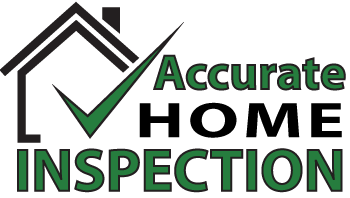Top 10 Secrets About Home Inspections
1. No construction experience is required to be a home inspector.
The only requirement to be a home inspector in Indiana is to pass a simple test. The test can be taken over and over and someone becomes a licensed home inspector once they finally pass the exam.
2. “Certified” home inspectors are not all the same.
There are two major home inspection associations, the International Association of Certified Home Inspectors (InterNACHI) and the American Society of Home Inspectors (ASHI). There is also the Master Inspector Certification Board (CMI). Each requires different things before an inspector can say they are certified. There are several other companies that will “certify” an inspector but most offer two-day courses that basically teach someone how to pass the home inspector exam. It’s impossible to learn everything there is to know about construction in two days. It requires years of application, training, and experience.
3. There are minimum standards for a home inspection but they are only a minimum.
Each inspection organization and each state has something called The Standards of Practice (SOP) for home inspections. If you read through the standards, you will see there are a lot of exclusions. For example, an inspector does not have to get on a roof or open an electrical panel. Some inspectors will strictly follow the SOP and they aren’t telling clients much about the homes they are inspecting. Inspectors shouldn’t do less than the SOP but it’s perfectly acceptable to go beyond the SOP. Make sure you know what an inspector is actually going to inspect and how.
4. Home inspectors do not have liability for anything missed during a home inspection.
Home inspection agreements are written so that the inspector isn’t liable for anything not mentioned in the inspection report. Typically even if you tried to sue an inspector, the agreements limit the amount to the price paid for the inspection. Search for home inspectors that offer some type of guarantee or insurance to help limit your losses for their mistakes.
5. No home inspector will find every problem in a home.
Most homes being inspected are being lived in and are full of personal belongings. Sellers are supposed to be given a list of areas an inspector needs to inspect but this rarely happens. Some sellers will also try to conceal important areas or problems so they don’t get inspected. Make sure you hire an inspector who will put effort into inspecting these areas.
6. Be cautious when someone hands you a list of their “favorite inspectors”.
There are several ways to get on these lists and most benefit the person handing you the list and not you. Typically these lists consist of three inspectors. Since you were given a choice, the person who gave you the list isn’t liable if you have a poor inspection. Ask yourself, is the person providing a recommendation going to benefit financially if you buy this home. If you ever want to know if the person giving you a list has your best interests in mind, research the inspectors on the list and other inspectors in the area. If you see the better inspectors aren’t on the list, you will see that person was not trying to help you.
7. Home inspectors do not have to use any tools during a home inspection.
When you walk around a home, you can’t tell if there are gas or water leaks or if items are wet, moldy, hot, etc. Neither can an inspector without the use of special tools, some of which are expensive. Make sure to ask what tools will be used during the inspection.
8. The length of the inspection can tell you a lot about an inspector.
Think about the last time you hired a contractor to look at one item in your home. They were probably there for at least an hour. Now multiply that by all the systems in a home. Ask yourself how well an inspector is inspecting an entire home in one or two hours.
9. A quality home inspection requires an inspector with years of knowledge.
Not only does an inspector need to understand how a home is built, including the roof, foundation, ventilation, plumbing, and electrical, they need to understand the science of homes and how these systems function together.
10. Price is not how you hire a home inspector.
If you read through the other 9 items on the list, you will see there is a huge difference in home inspectors. Make sure you hire the inspector who has the most knowledge, will devote the most time to the home and uses the most tools. A good home inspector will save you money in the end. Their findings could save you money in future repairs and they can offer helpful home maintenance recommendations during an inspection. When you pay less for an inspection you’re not always saving money. More often than not you’re just getting an inferior inspection.
Buying a home might be the largest purchase you’ll ever make so be sure you don’t hire the first inspector to answer the phone. Don’t pick the person who can do the inspection first and fastest. And don’t simply go with one who was recommended. Always make an informed decision and GOOD LUCK!
